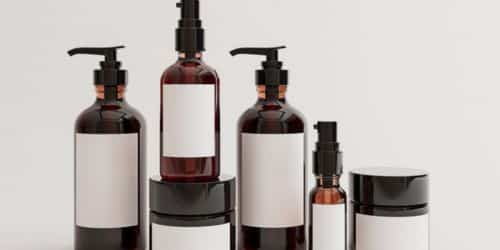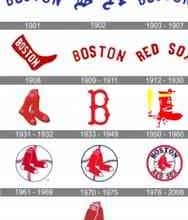Are you a small business owner seeking a new profitable venture? Think about the power of private-label products! Explore the world of private label products if you’re a small business owner seeking to diversify your product line. Small businesses have a great opportunity to build their brand identity, boost profits, and give their clients something unique by offering private-label products. Understanding how to private label products is essential to your business, regardless of whether you want to sell specific private label products or buy wholesale private label goods. You can also open up a world of opportunities by delving into the world of small business private label items. This article will help you understand more about private label products.
What Are Private Label Products?
When deciding between dropshipping and investing the time and money into manufacturing their own items, many online retailers find that private-label products provide the best of both worlds. The term “private labeling” refers to the practice by which one business has another produce goods for resale under its own name. All products can be “private labeled” with the retailer’s logo and name before being sold. Private-label goods have probably been hiding right in front of your eyes the whole time!
When you go to the grocery store, do you ever notice the store’s own brand products? All the big box stores have their own private label lines, including Walmart, Target, and Costco. These retailers don’t produce their own goods, but rather contract manufacturing out to others and apply their own labels to the packaging.
17+ Best Private Label Products to Sell
When considering the best private-label products to sell, it’s important to research and analyzes market trends, customer demands, and profitability. While the ideal products may vary depending on your target market and industry, here are 17+ product categories that have shown success in private labeling:
- Beauty and skincare products
- Health supplements and vitamins
- Organic and natural food items
- Fitness and sports equipment
- Home decor and accessories
- Pet supplies and accessories
- Baby care products
- Kitchen gadgets and utensils
- Personal care and hygiene items
- Fashion accessories (jewelry, bags, sunglasses)
- Organic and specialty beverages
- Eco-friendly and sustainable products
- Mobile phone accessories
- Essential oils and aromatherapy products
- Organic and specialty teas
- Home cleaning supplies and eco-friendly alternatives
- Art and craft supplies
These are just a few examples, and it’s essential to conduct thorough market research to identify specific products within these categories that align with your target audience and have a competitive edge. Additionally, stay updated on emerging trends and consumer preferences to stay ahead of the market.
Private Label Products for Small Businesses
Private label products for small businesses work by partnering with manufacturers or suppliers to create customized goods. Additionally, businesses collaborate with them to develop products that meet their specific requirements and branding.
Small businesses can also select from existing product alternatives provided by manufacturers or collaborate with them to develop unique items tailored to their brand. Once the product is complete, the small firm can market and sell it under its own brand name, helping it to build a distinct identity in the market.
Furthermore, small firms can use manufacturers’ experience and resources to handle production, packaging, and transportation, allowing them to focus on marketing and brand growth. This business strategy also allows small enterprises to offer exclusive products, establish client loyalty, and potentially boost profit margins.
Wholesale Private Label Products
Wholesale private-label products are items created by a manufacturer or supplier and sold in bulk to retailers. These products serve as a blank canvas for retailers to personalize with their own branding, packaging, and also labels, providing them with a market-exclusive and one-of-a-kind offering. However, this personalization enables merchants to establish a brand identity and develop a unified product range that reflects their values and target market.
Retailers benefit from cost reductions when they purchase wholesale private-label products in quantity. This allows them to charge competitive prices while still retaining strong profit margins. Furthermore, retailers have complete control over the sales process, from marketing and advertising to distribution and customer service. Therefore, with this level of control, they are able to connect their product offerings with their broader business strategy and adapt rapidly to market demands and trends.
Wholesale private-label products enable retailers to stand out from the crowd and establish consumer loyalty. Retailers can also establish a unique selling proposition that attracts and retains customers by offering things that are not available elsewhere. Furthermore, retailers can establish strong working ties with manufacturers or suppliers, assuring constant product quality, dependable delivery, and continuing support.
How to Private Label Products
To private label products, follow these steps:
#1. Identify a Product
Choose a product that aligns with your target market, and that also has the potential for profitability.
#2. Find a Supplier
Research and connect with manufacturers or suppliers who can produce the product to your desired specifications.
#3. Customize Branding and Packaging
Design your own branding elements, such as logos, labels, and packaging, that reflect your brand identity.
#4. Determine Product Specifications
Communicate your requirements to the supplier, including quality standards, materials, and any specific features or modifications.
#5. Place an Order
Finalize the details with the supplier and place an order for the desired quantity of private-label products.
#6. Quality Control
Ensure that the products meet your quality standards by implementing rigorous quality control measures during production and before shipping.
#7. Develop Marketing and Sales Strategies
Create a marketing plan to promote your private label products, including pricing, distribution channels, and promotional campaigns.
#8. Launch and Monitor
Introduce your personal label products to the market, monitor customer feedback, and sales performance, and also make necessary adjustments to optimize success.
#9. Build Brand Loyalty
Deliver exceptional customer experiences, maintain product quality, and engage with customers to foster loyalty and repeat business. By following these steps, you can successfully private label products and establish your brand’s presence in the market.
What Is a Private Label Product Example?
A private label product is one manufactured by one company but sold under a different brand. For example, a supermarket may offer its own brand of cereal, competing with well-known brands. These private-label products are often similar in quality but priced lower, providing customers with affordable alternatives. Additionally, pharmacies may sell their own brand of pain relievers, which are equivalent in formulation and effectiveness to popular name brands. By offering personal label products, businesses can provide value and choice to their customers while establishing their brand’s presence in the market.
Is It Legal to Private Label Products?
It is legal to privately label products as long as they comply with relevant laws and regulations. Businesses must also ensure that personal label products meet safety standards and labeling requirements. Furthermore, they should avoid intellectual property infringement by creating their unique branding and packaging.
Is Nike a Private Label Brand?
Nike isn’t a private label brand. Nike is a well-known international brand that creates, produces, and markets its own goods under its own name. Private-label products are often produced by a single business and distributed under various brand names. However, private labeling is not connected to the distinctive brand Nike.
How to Choose a Private Label Product to Sell?
When selecting a private-label product to sell, consider the following steps:
#1. Identify Your Target Audience
Understand the demographics, preferences, and needs of your potential customers to determine what products will appeal to them.
#2. Research Market Trends
Stay up to date with current market trends, emerging products, and popular niches to identify potential opportunities.
#3. Evaluate Profitability
Analyze the production costs, potential profit margins, and pricing strategies associated with the product to ensure it offers viable profit potential.
#4. Assess Competition
Research and analyze the competitive landscape to determine if there is room for your product and identify ways to differentiate yourself from competitors.
#5. Consider Production and Sourcing
Evaluate the feasibility and cost-effectiveness of manufacturing or sourcing the product, ensuring reliable suppliers or manufacturers are available.
#6. Quality and Branding
Ensure the product meets high-quality standards and consider how you can also add value through branding, packaging, and customization.
#7. Test and Validate
Before committing to a large inventory, conduct small-scale tests to gauge customer interest and validate market demand for the product.
#8. Scalability and Growth Potential
Choose a product with the potential for scalability and long-term growth, allowing you to expand your product line and also reach a wider market over time.
#9. Personal Interest and Expertise
Consider selecting a product that aligns with your passion, knowledge, and expertise, as it will also make marketing and selling more enjoyable and authentic.
By following these steps, you can make an informed decision and choose a private-label product that has a higher chance of success in the market.
What Companies Use Private Label Products?
Many companies across various industries utilize private-label products. Some examples include:
#1. Retailers
Private label products are available from large retail chains such as Walmart, Target, and Costco in a variety of categories such as food, household goods, and personal care items.
#2. Supermarkets and Grocery Stores
Many supermarkets and grocery chains have their own private-label brands for products such as canned goods, snacks, beverages, and frozen foods.
#3. Beauty and Cosmetics
Companies like Sephora and Ulta Beauty offer private-label beauty and skincare products, including makeup, skincare, and hair care items.
#4. Clothing and Fashion
Fashion retailers, such as H&M and Zara, often have private label brands that provide affordable clothing options.
#5. Online Marketplaces
E-commerce websites such as Amazon have their own in-house private label brands that cover a diverse array of product categories, such as clothing, electronics, and household items.
#6. Health and Wellness
Health stores and supplement companies often have private-label brands for vitamins, supplements, and also health-related products.
#7. Pharmacy and drugstore chains
Companies like CVS and Walgreens offer private-label products in areas like over-the-counter medications, personal care, and also baby care.
These are only a few instances, but private label goods are available across a range of markets and industries, giving companies the chance to forge their own unique brand identities and provide their clients with special products.
FAQs
Is Private Labeling Profitable?
Yes, private labeling may be quite successful if you sell the correct products and have a good wholesale partner. However, selling high-margin products to a select group of customers can result in substantial earnings.
What exactly do private labels sell?
A private label product is one that is manufactured by a third party but sold under the retailer’s own brand name. The store has complete control over the goods or products. This includes the product’s specifications, packaging, and everything else.
Is it legal for me to put my own label on wholesale clothing?
Yes. Labeling wholesale clothes is acceptable if you follow specific guidelines and properly grasp what the manufacturer thinks about reselling their products. There are numerous clothing label producers on the market who can assist you in creating a custom tag for this wholesale clothing line.
Related Articles
- PRIVATE LABEL MANUFACTURERS: How To Find Them
- PRIVATE LABELING MANUFACTURERS: The Top 15 picks to kickstart your brand
- HOW TO START A RECORD LABEL: How to Start a Record Label Company 2023
- PRIVATE LABELLING: How It Works, Comparisons, Examples & Best 2023 Practices






